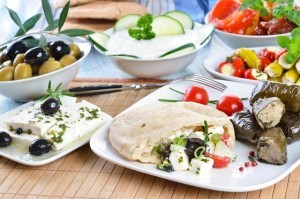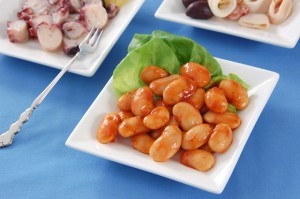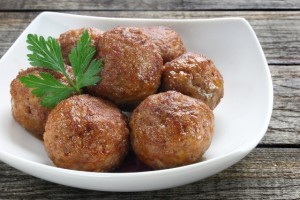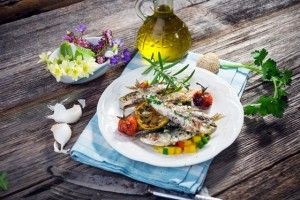One of the most persistent memories we have is of the aroma and taste of home cooked food. The warmth, the sense of security and intimacy associated with home cooked food are universal experiences.
Greek cuisine, rich with authentic flavours and aromas represents an age-old cultural unity. Women are at the forefront of this tradition. Playing the key role in the family microcosm, they have borne the responsibility for prudent handling of ingredients. Their ingenuity has left its mark on the character of Greek gastronomy.
Today, people are rediscovering the immutable values. Home cooking and baking, the main ingredient of which is love, are once again creating a storehouse of memories.
A true work of art
For the Greek people olive oil is not just precious, but truly sacred. It is associated with the cycle of life through age-old traditions. This relationship is an expression of the vital importance of this noble liquid for healthy living.
The dishes referred to as ‘ladera’, which are made from one or more vegetables cooked in an olive oil-based sauce usually including tomatoes and garlic, are a true banquet of colours and flavours. Pulses and beans, either fresh or dried, are cooked so as to retain their full nutritional value. Green beans, broad beans, lentils, split peas, chickpeas, peas and okra: plain ingredients converted into sensational dishes by the simple addition of onions, herbs and spices, and precious olive oil.
Cooking with hidden treasures
Apart from the usual ingredients found in Greek cuisine, you may also discover more rare delicacies, cooked in exceptional ways.
‘Volvoi’, the nutritionally valuable edible bulbs of the hyacinth (muscari comosum), are one such dish you may find on the Greek table. Choice game from the mountain regions, gifts from the sea such as ‘avgotaraho’ (salt-cured flat-head mullet roe or ‘bottarga’), and rare wild greens and fragrant fruits are all wonderful culinary surprises. Wild asparagus and artichokes, wild forest mushrooms, snails, and a variety of herbs which grow wild, whatever nature has to offer, all become first class ingredients in the Greek kitchen.
The wealth of the sea
There are a great number of traditional Greek dishes with an aroma fresh from the sea. Greek waters contain some of the tastiest fish to be found anywhere in the world. Great fish-based soups, tasty seafood snacks and appetizers (‘meze’), excellent large charcoal grilled pelagic fish or fried “young baby fish” accompanied by white wine, ouzo or ‘tsipouro’ (distilled grape pomace), are flavours synonymous with Greek cultural tradition.
Recipes from the mountain regions
The mountain regions of Greece are a gastronomic paradise. Rich tasting meat, fragrant pies, traditional hand-made pasta, powerful red wine and distilled spirits, create an inexhaustible wealth of tastes and flavours. In Epirus and Macedonia, in the mountain regions of the Peloponnese and even on the hilltops in the islands, an ancient culinary tradition artfully combines ingredients and has many a great treat to offer. Having kept their traditions intact, the mountain areas of Greece are appreciated as a destination which offers an authentic flavour of this country.
Sugar and honey
All the ingredients offered by the Greek earth are an opportunity to create something sweet in the experienced hands of skilled pastry chefs. The variety of sweets and desserts is impressive, and even more so when you considered their originality.
The syrupy baked pastries and delicious sweet pies are famous around the world. Kataifi (a shredded wheat type of syrup pastry with nuts), baklava (the traditional phyllo syrup and nut pastry which most people know), ‘galaktoboureko’ (a kind of milk custard pie), the Macedonian ‘roxakia’ (cocoa and cinnamon dough cookies), and ‘ravani’ syrup cake are just some of the traditional sweets in Greek pastry making.
But unexpected ingredients are also skilfully turned into unique desserts. Syrupy ‘spoon’ sweets (‘tou koutaliou’) are a separate chapter in traditional Greek sweet making. Eggplant, bitter orange, unripe walnuts, fragrant rose petals and even watermelon can all be used to make uniquely delicious sweets once bound with the sugar and honey syrup, which is allowed to thicken over a low heat. Inventiveness and a centuries-old tradition passed down through the generations have served to create unusual and truly tempting flavours.
Ask me anything
Explore related questions









